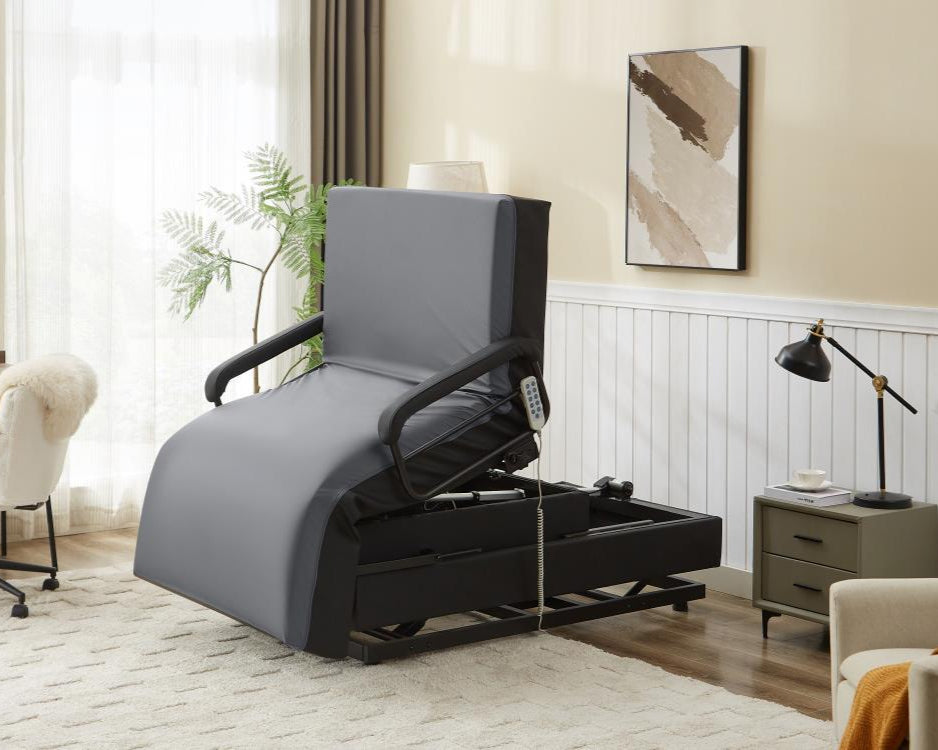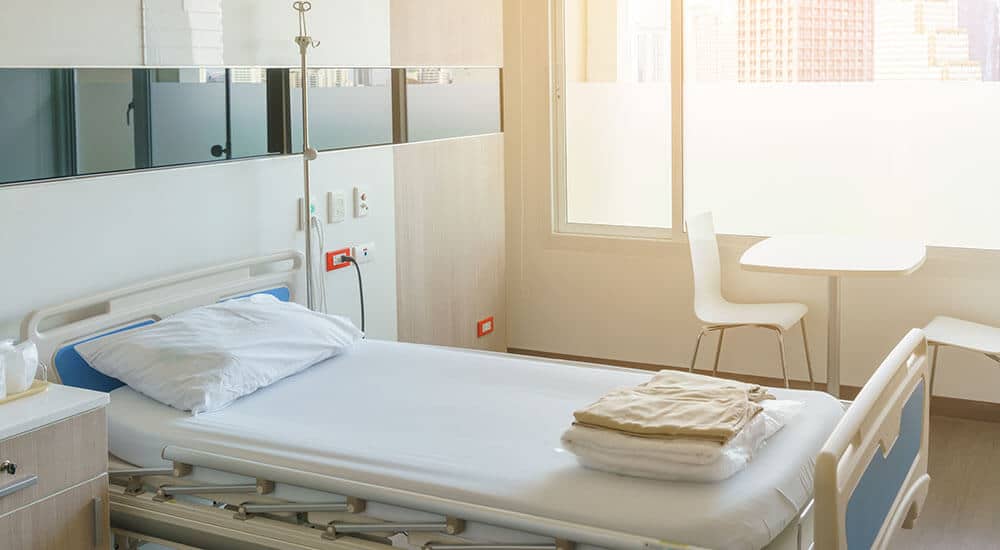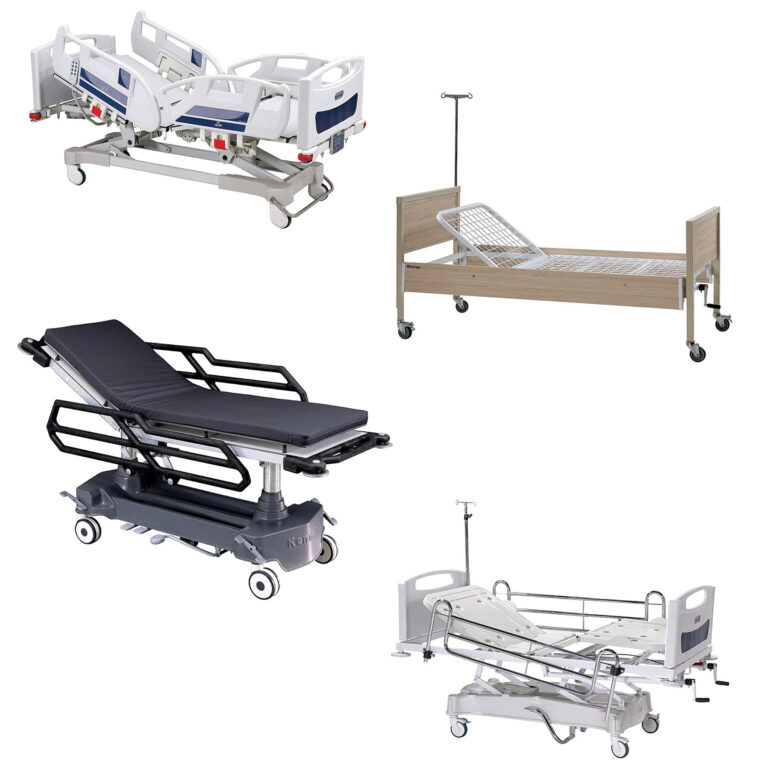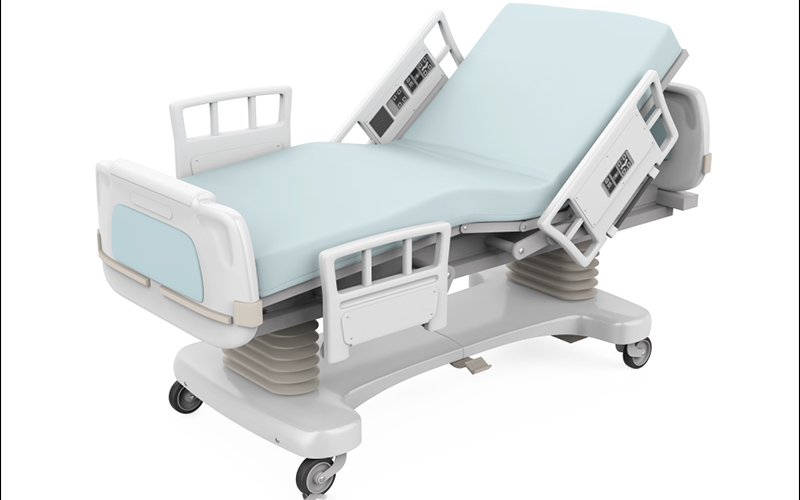Hospital Beds For Home Use Fundamentals Explained
Hospital Beds For Home Use Fundamentals Explained
Blog Article
The Basic Principles Of Hospital Beds For Home Use
Table of ContentsExamine This Report on Hospital Beds For Home UseHospital Beds For Home Use for DummiesOur Hospital Beds For Home Use StatementsExamine This Report on Hospital Beds For Home UseThe Best Guide To Hospital Beds For Home UseThe Best Guide To Hospital Beds For Home UseThe Main Principles Of Hospital Beds For Home Use
There are 3 major types of health center beds: handbook, semi-electric, and fully-electric. These beds make use of hand cranks to change the bed's height and increase and decrease the head and the foot.
Semi-electric beds have an electric motor to raise and decrease the head and foot sections of the bed (hospital beds for home use). Full-electric beds have an electric motor that can elevate the head and foot areas of the bed as well as the whole elevation and positioning of the bed.
5 Simple Techniques For Hospital Beds For Home Use
Some models can also relocate into even more positions, such as the Trendelenburg (tilt) placement. There are numerous kinds of hospital beds, each made to fulfill details individual needs. Right here are some common kinds: This is the most typical type of hospital bed, created for general clinical use. It has a guidebook or electrically adjustable headrest, foot rest, and height.
Lower to the ground than a basic bed. This type of bed is designed for bigger clients, with a broader framework and higher weight capacity than a common bed.
This kind of bed is created for seriously unwell clients that call for open monitoring and specialized medical equipment such as ventilators and mixture pumps. This kind of bed is made for usage throughout labor and delivery, with adjustable settings and attributes to support the mom and child throughout the birth procedure.
Hospital Beds For Home Use Things To Know Before You Buy
Numerous function and the accessories execute increasing traction to different parts of the vertebra and the extremities without relocating the human body. These are just a couple of instances of the sorts of hospital beds available. The specific kind of bed used will certainly rely on the individual's condition, medical demands, and various other variables.
Right here is the thing you need to recognize. A one-function medical facility bed is a medical bed that permits an individual to relocate just the head or foot section up or down. A 2 feature healthcare facility bed typically describes a kind of medical bed that has 2 adjustable features to help individuals in hospitals or treatment facilities.

More About Hospital Beds For Home Use
A 7-function ICU bed is a kind of medical bed that supplies a number of flexible features visit to sustain seriously ill individuals in an intensive treatment unit (ICU) (hospital beds for home use). The seven functions generally include: Backrest change: The back-rest can be adapted to numerous angles to help the person sit up or relax easily
Height adjustment: The bed can be increased or reduced to make it much easier for people to enter and out of bed, and for caretakers to provide treatment. Trendelenburg setting: The entire bed can be slanted to promote blood flow and circulation in the body. Reverse Trendelenburg placement: The bed can additionally be tilted in the contrary instructions to advertise blood flow and flow in the upper body.
1. What Size is a Health Center Bed? 2. Exactly how Much Does a Medical Facility Bed Cost? 3. Why Do Healthcare Facility Beds Have Side Rails? 4. What Are The Main Healthcare Facility Bed Parts?. While more inexpensive than electric versions, these beds require physical initiative for changes. The major advantages of hands-on beds are their affordability and dependability, as they don't depend on electrical power. The need for hands-on initiative can be a constraint in situations where quick adjustments are necessary or where caregivers encounter physical obstacles.
What Does Hospital Beds For Home Use Do?
Semi-electric healthcare facility beds supply a balance of handbook and electric controls. These beds offer an optimal center ground in between guidebook and totally electric choices, using simplicity of usage without the complete price of electrical versions.
Semi-electric beds are appropriate for clients who need modest adjustments to the head and foot sections yet can take care of without frequent height changes. This makes them a cost-effective solution for those seeking comfort and convenience without the demand for constant repositioning. Fully electrical health center beds include electric controls for seamless adjustments to the elevation, head, and foot sections.
Specialty healthcare facility beds, such as ICU beds, lasting care beds, and bariatric beds, are meticulously created to deal with particular find this medical needs. These beds supply customized look after varied client groups, boosting both results and comfort. In the adhering to sections, we will certainly check out the main types of specialized healthcare facility beds, describing their details advantages and applications.
With years of experience in manufacturing electrical linear actuators - hospital beds for home use and close cooperation with the health care sector, TiMOTION is well-positioned to supply reputable healthcare options. Our vertically incorporated firm handles every action of the manufacturing procedure, from design to actuator assembly, guaranteeing we deliver outstanding value and personalized solutions customized to your specific requirements
Hospital Beds For Home Use - The Facts

To find out more regarding integrating these innovations see it here right into your products, call us today. More reading:.
Data is sourced from the Medicare Expense Record.

An Unbiased View of Hospital Beds For Home Use
A healthcare facility bed is a bed created particularly for medical purposes. It is not just a location for clients to rest, yet additionally a system for clinical operations. Unlike regular home beds, healthcare facility beds normally have adjustable attributes, which can facilitate medical staff to make numerous modifications according to the needs of patients, such as transforming the height, disposition, and support angle of the back and legs of the bed.
Report this page